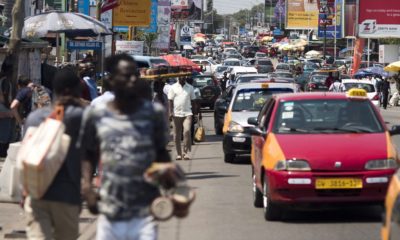The Democratic Republic of Congo (DRC) is undertaking an ambitious upstream drive in the hopes of attracting new players to the market, increasing production and ushering in a new era of energy security for the central African nation.
While a 30-block licensing round currently underway is set to open the market up for frontier exploration, a new deal signed with Angola is expected to kickstart a wave of oil and gas developments on the back of cross-border knowledge sharing.
The Ministry of Hydrocarbons of the DRC and the Ministry of Mineral Resources, Petroleum and Gas of Angola are set to sign a Memorandum of Understanding (MoU) for the co-ownership and development of the Chevron-operated Block 14, which is located on the maritime border of the two countries. The signing will formalize the countries shares in the Block, with both the DRC and Angola retaining 30% ownership each while Chevron holds the remaining 40%. Set to be signed on July 13, 2023 in Kinshasa, the MoU will unlock a new era of cooperation regarding offshore energy development between the two hydrocarbon-producing countries.
The African Energy Chamber (AEC), as the voice of the African energy sector, strongly commends and supports the DRC and Angola for reaching the agreement as it will pave the way for a new chapter of cooperation between the two countries in addressing oil and gas industry challenges in the energy transition era. Notwithstanding the opportunities for Angola, the deal will bolster DRC exploration at a time when global stakeholders are calling for an end to fossil fuel investments.
Representing a relatively untapped hydrocarbon market, the DRC is inviting E&P players to capitalize on the country’s promising on- and offshore acreage. To date, licenses have been awarded for only three Lake Kivu gas blocks, and with 27 blocks still up for grabs, the country offers lucrative opportunities for frontier E&P players. Stepping into this picture, the DRC-Angola deal is set to trigger a wave of interest in the central African market as the major oil producer leverages its expertise to grow the DRC offshore market. The deal is not only a testament to both countries’ stability but to their focus on strengthening bilateral cooperation in pursuit of energy security. For other regional nations, the deal serves as a benchmark, while for foreign players, a demonstration of political will and support for offshore exploration.
With Angola’s National Oil Company (NOC) Sonangol in the process of privatizing, the country is positioning the NOC as a competitive operator. This spells new opportunities for collaboration between the respective NOCs of Angola and DRC, with Sonahydroc – the DRC’s NOC – standing to learn a great deal from its regional counterpart. Under the terms of the Block 14 deal, Sonangol will be writing off a $200 million debt for Sonahydroc, enabling the NOC to prioritize funding towards the development of Block 14. This is a testament to not only the potential of the Block but to Angola’s commitment to furthering regional collaboration.
“The AEC strongly supports the DRC and Angola for reaching an agreement on the co-development and monetization of resources on Block 14. We are confident that the deal will not only benefit the two countries but will unlock regional energy market growth. We see the DRC’s target of increasing production from 23,000 barrels of oil per day to between 500,000 and one million barrels turning into a reality from such a cooperation. For Africa to make energy poverty history on the back of its oil and gas resources, cooperation amongst countries is key. Senegal and Mauritania have set an example on the Greater Tortue Ahmeyim development and now the DRC and Angola are following suit on Block 14,” stated NJ Ayuk, the Executive Chairman of the AEC.
















